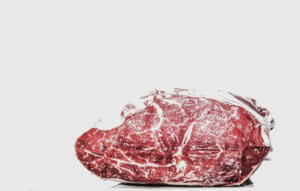The “Dana- Farber Cancer Institute” states that “there is currently no concrete evidence that a ketogenic diet will benefit cancer patients in particular. The purported benefits of the keto diet for cancer patients are not evident, the potential risks are a concern”.
The Keto Diet and Cancer: What You Should Know | Dana-Farber Cancer Institute
Published: July 16, 2018
Updated: November 12, 2019
Medically reviewed by Stacy Kennedy, MPH, RD
The ketogenic diet — also called the keto diet — consists of foods that are high in fat, moderate-to-low in protein, and very low in carbohydrates. It sends the body into a state of ketosis, resulting in the formation of molecules known as ketones. This process occurs when the body is forced to use fat for energy in the absence of carbohydrates.
There is speculation that a keto diet can help cancer patients “starve cancer cells” by preventing the cells from using glucose for energy and growth. But is there evidence that a keto diet can be truly beneficial in the treatment of cancer?
At this point, there is currently no concrete evidence that a ketogenic diet will benefit cancer patients in particular. Clinical trials are exploring the implications of a keto diet for cancer patients, and results have yet to be revealed.
What are the side effects of a keto diet?
Adhering to a keto diet can be challenging and may be particularly so for cancer patients, many of whom may be enduring side effects from treatment. Entering a state of ketosis requires following a strict diet-plan, comprised of high fat foods such as bacon, heavy cream, and butter, while simultaneously restricting other categories of food, such as starchy vegetables like sweet potatoes, whole grains, and certain fruits. This dramatic change in eating habits can lead to nausea and digestive upset in addition to unintentional weight loss and increased risk of malnutrition.
While the purported benefits of the keto diet for cancer patients are not evident, the potential risks are a concern. It may be difficult for keto-dieters to meet their energy and protein needs, and the diet may cause long-term issues, including kidney damage, higher cholesterol levels, unintentional weight loss, bone loss, and certain vitamin and mineral deficiencies.
For patients interested in the keto diet, a more moderate approach may be advised. There is evidence that cutting down on the amount of refined carbohydrates in typical diets and increasing the amount of healthy fats consumed can be beneficial to one’s overall health. Before altering your diet in any way, you should always consult with your doctor and registered dietitian.










